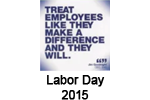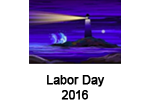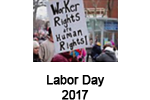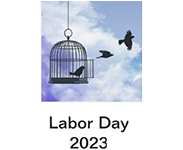An Attorney to Fight for You!
Affordable Rates
Retaliation / Whistleblower
Some employers believe they are all-powerful and that they have the right to do whatever they want, regardless of what the laws prohibit. When an employee actually has the guts to stand up for what they believe in and complain (internally or externally) about working conditions or that their employer is engaging in illegal conduct – such as that the employer is committing race or sex discrimination, or health and safety OSHA violations, or theft, etc. – then some employers choose to actively (and illegally) retaliate against the employee who spoke up. Frequently it is a catch 22 for the employee – don’t speak up and continue to be subjected to the employer’s abuses; or speak up and be retaliated against by the employer.
Fortunately, there are numerous anti-retaliation laws in effect that provide protections and remedies for those employees who have been retaliated against for having in good faith spoken up and complained. You also do not need to be a member of a union to have such protections.
Generally speaking – and with necessary legalese – the anti-retaliation laws provide that an employer may not take any “material adverse actions” against an employee for making a “protected complaint”, or for otherwise engaging in either: 1. “protected activity”; or 2. “protected concerted activity”.
Material Adverse Action
A material adverse action by an Employer – as defined by the U.S. Supreme Court in Burlington Northern & Santa Fe Railroad Co. v. White, and subsequent cases – involves an action against an individual that was harmful to his/ her compensation, terms, conditions or privileges of employment, or that limits, segregates, or classifies an employee in any way which would deprive or tend to deprive any individual of employment opportunities or otherwise adversely affect their status as an employee, and/or that otherwise would go to the point that it could well dissuade a reasonable worker from making or supporting a protected complaint.
Some examples of material adverse actions include: a pay decrease (including also not receiving a pay increase that the Employee would have otherwise received), a demotion (or lost promotion), a reassignment, a suspension (particularly if it involved a loss of pay), a reassignment of duties to a dirtier or more difficult job, and a termination of employment.
Protected Activity
Protection of employees against retaliation can include the following:
- Protected External Activity – where the employee has filed a formal administrative (e.g. EEOC/ IDHR, NLRB, OSHA, or Il. Dept. of Labor) or judicial claim;
- Protected Internal Activity – where the employee has made an internal claim of discrimination or of other illegality (including also informal verbal or written complaints) or where the employee has participated in an investigation regarding same (e.g. being a witness and giving a verbal or written statement); and
- Protected Concerted Activity – where an employee has internally complained of working conditions.
Legal Standards for Protected Activity:
- If you file a job discrimination complaint with the EEOC, etc. or otherwise participate in an EEOC investigation, etc. or lawsuit, you are protected against retaliation regardless of the validity or reasonableness of the original allegation of discrimination. This protection applies to anyone who participates in a job discrimination proceeding, including anyone who files an EEOC complaint or a lawsuit, talks to the EEOC, or serves as a witness.
- If you report discrimination to someone other than the EEOC, slightly different rules apply. To be protected from retaliation in this situation, you must have a reasonable and good faith belief that the practice you are complaining about is illegal and you must oppose the practice in a reasonable manner. It also must be reasonably clear that you are complaining about illegal job discrimination. If your complaint meets all of these criteria, your employer may not retaliate against you, even if you were mistaken about the unlawfulness of the challenged practice.
Note that the “other illegality” prong of protected internal activity mentioned above generally needs to fall under the following: when the discharge (or other retaliatory action) violates a clearly mandated public policy.
The Illinois Supreme Court has defined a clearly mandated public policy as being “what is right and just and what affects the citizens of the State collectively”, and that such a policy must “strike at the heart of a citizen’s social rights, duties, and responsibilities.” The Court has gone on to say that public policy is to be found in the State’s Constitution, statutes and judicial decisions and, where the public policy arises from a statute or constitutional provision, it is identified by “examining the history, purpose, language and effect of the provision.” This, understandably, requires a fact sensitive analysis.
Moreover, while the typical/ “classic” retaliation claim involves a situation where an Employer terminates an Employee in retaliation for claiming discrimination, there are also other types of protected complaints. For example, in Parise v. Integrated Shipping Solutions (NDIL 2017) the Employee claimed that he was terminated in retaliation for his having internally claimed to his Employer that not been paid in accordance with his written employment contract. The Court (U.S.D.J. Joan H. Lefkow), in denying the Employer’s motion for summary judgment, found that the Employee had stated a valid retaliatory discharge claim under the Illinois Wage Payment & Collection Act.
Example 1 (Protected Activity): Kate is suspended without pay for 1 week for engaging in the same activity that John did, with John not having even been disciplined for such activity. Kate complains internally that she believes that she has been treated differently because she is a female. If Kate’s reasonably believes that she was treated differently based on her being a female (even if she is wrong) then that is a protected complaint. If the Employer then retaliates against Kate for her complaint that is illegal.
Example 2 (activity that is not protected): Cathy is placed on a Performance Improvement Plan (“PIP”), and believes that the real reason she was placed on this PIP is because of a personality conflict between her and her supervisor that is not based on her race, national origin, etc. If Cathy complains about being placed on this PIP, and correctly states that the PIP was unwarranted and not based on valid criticisms of her performance/ conduct, then that would not be a protected complaint. In this regard, even if Cathy claimed that she was placed on this PIP due to her race, national origin, etc., that because she did not believe that to be the case then it would not be a protected complaint. In such a situation, if the Employer then retaliates against her for this not-protected complaint then that would not be illegal.
To determine whether your situation falls under the protection of the various anti-retaliation laws requires a fact specific inquiry that I have done many times. Moreover, because I am familiar with the anti-retaliation laws, I can frequently assist employees (before-the-fact as well as after-the-fact) in increasing the likelihood that their complaint does fall under those laws and that it is a “protected complaint” or “protected concerted activity” – thereby further protecting my clients, making the complaint more effective, and giving my clients further strength, security, and options.
Prohibited adverse actions may include, but are not limited to, termination, demotion, or any other adverse action that has the effect of deterring individuals from reporting discriminatory conduct, participating in an investigation into such a complaint, or otherwise engaging in protected activity.
If an Employer has terminated your employment (or otherwise committed a material adverse action against you) as a result of your protected activity, then you do not need to just take it but rather you have options – such as to file a lawsuit or, short of that, to pursue severance/ more severance (e.g. settlement short of a lawsuit). I frequently advise and successfully represent individuals in these situations, and obtain substantial monetary recovery for my clients (sometimes very quickly).
- Did your employer terminate your employment in retaliation for your complaining about discrimination, harassment, or other illegal conduct?
- Did your employer voice anger and/ or attempt to intimidate or threaten you when you advised that you believed you were being treated in a disparate manner as compared to other employees?
- Were you threatened or suspended after you complained about working conditions (including also complaining about how your boss treats you or you being subjected to an unsafe workplace)?
- Were you demoted or otherwise subjected to negative terms of employment after you confirmed to the employer that another employee’s complaints of discrimination or unsafe/abusive work conditions were truthful?
- Did you refuse to engage in illegal actions, with your employer resultantly reducing your pay or resultantly pass you over for a promotion and/ or a pay raise?
- Do you want to know how to most effectively (and most safely for your continued employment) go about complaining about discrimination or racial/ sexual harassment or abusive work conditions?
Depending on the circumstances, a mere consultation with me can make a positive difference in your employment situation (sometimes being the difference between you being disciplined/terminated and that not occurring), which understandably can likewise make a big impact on your income as well as your peace of mind. Other times, our pursuing severance and/or litigation may be the way to go.
If you believe that you may have been subjected to illegal retaliation, or if you are concerned that you may in the future be subjected to illegal retaliation, then call me to briefly discuss if it makes sense for you to come in for an appointment to my Chicago loop office to further discuss your employment situation.



















